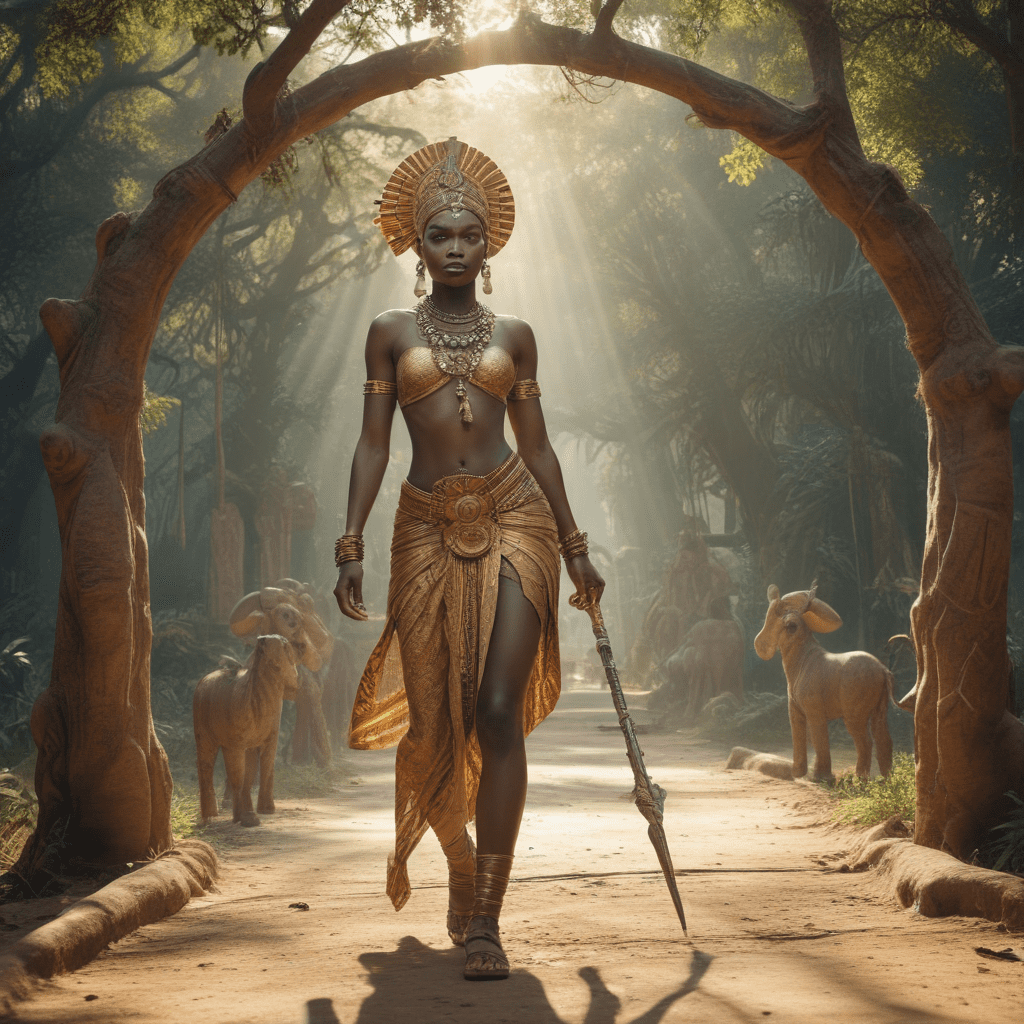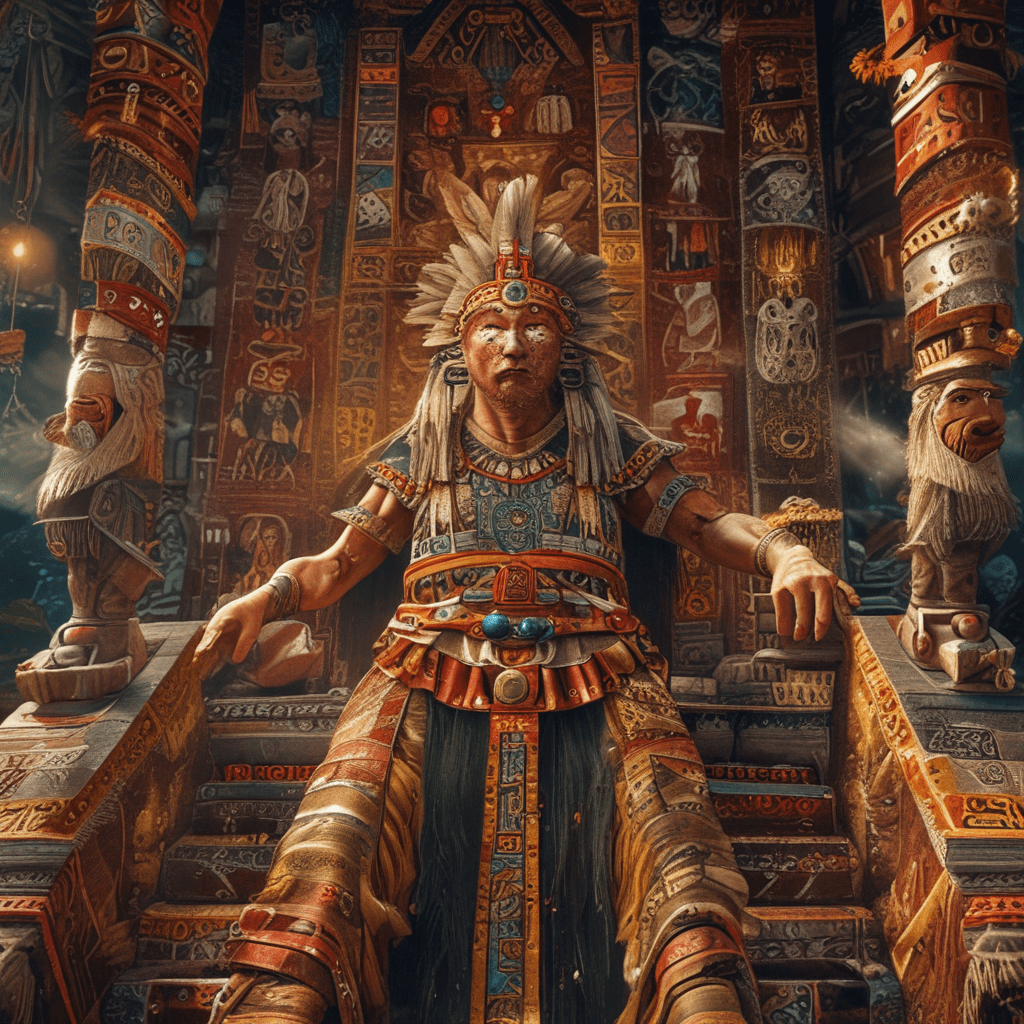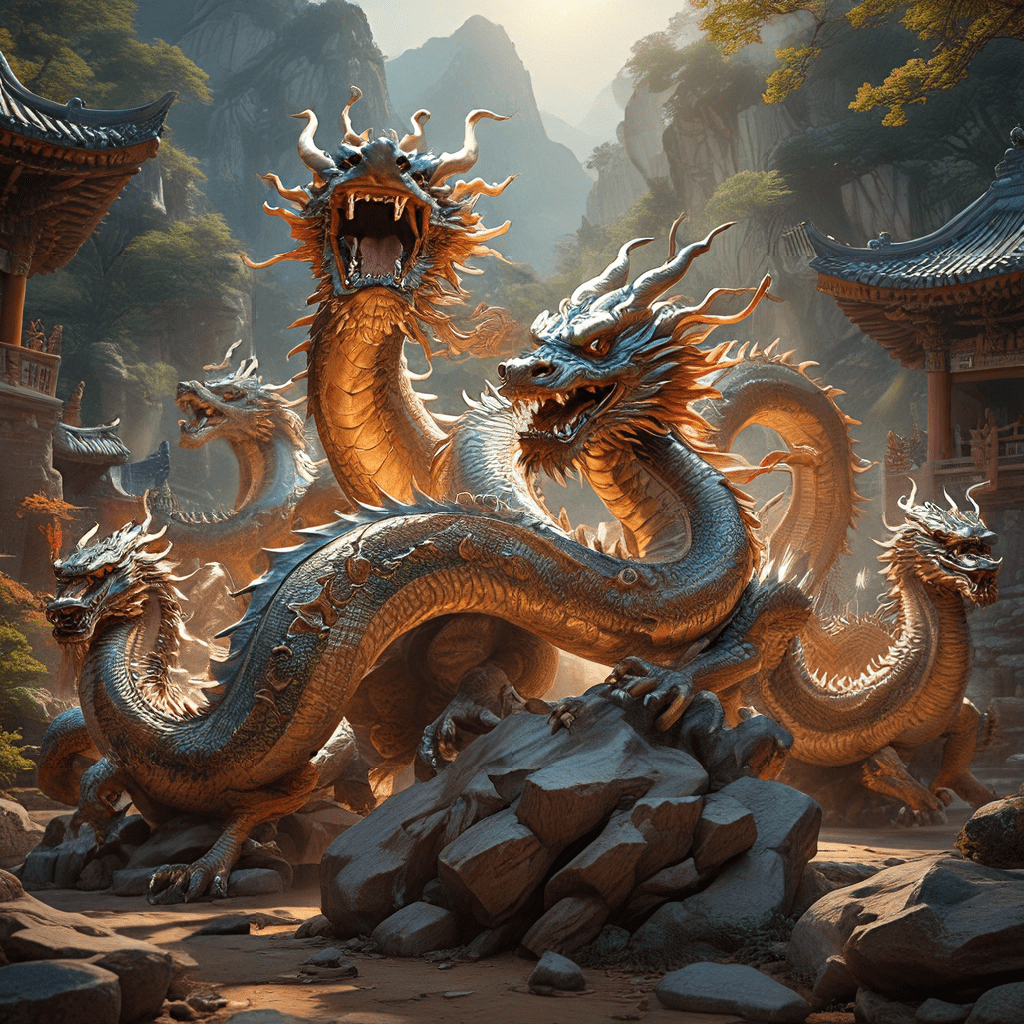African Mythology: Bridging Past and Present
Introduction
African mythology, a profound tapestry of stories, beliefs, and spiritual traditions, forms an integral part of the African cultural heritage. It has played a pivotal role in shaping the African worldview, serving as a guiding force for generations. As we delve into the depths of African mythology, we uncover the rich legacy it has bestowed upon the present, its enduring power, and its continued relevance in contemporary society.
The Significance of African Mythology
African mythology encompasses a vast corpus of origin myths, creation stories, tales of deities and spirits, and epics recounting the deeds of legendary heroes. It provides a framework for understanding the world's creation, the nature of humanity, and the relationship between humans and the divine. By exploring these timeless narratives, we gain insights into the beliefs, values, and aspirations of African societies throughout history.
The Power of Ancestors in African Culture
Ancestral veneration holds immense significance in African mythology and spirituality. Ancestors are believed to possess supernatural powers and influence the lives of their living descendants. They are venerated as guardians, protectors, and sources of guidance. Through rituals, offerings, and prayers, Africans seek to honor their ancestors, maintain familial bonds, and ensure their continued support and protection.
Spirituality and Religion in African Mythology
Spirituality is deeply entwined with African mythology, permeating all aspects of life. Myths provide frameworks for religious practices, define the roles of deities and spirits, and explain the origins of religious rituals. They offer profound insights into the spiritual beliefs, customs, and traditions that have shaped African cultures for centuries.
The Role of Myth in Shaping Identity
Myths play a crucial role in shaping individual and collective identities within African societies. They provide narratives that explain the origins of specific ethnic groups, clans, and nations. By identifying with these myths, individuals establish a sense of belonging, cultural affiliation, and shared heritage. Myths also serve as a source of cultural pride and empowerment, instilling in Africans a deep appreciation for their traditions and history.
6. Mythology as a Tool for Healing and Empowerment
African mythology has served as a powerful tool for healing and empowerment throughout history. Myths provide narratives that help individuals and communities process trauma, grief, and other challenging experiences. They offer coping mechanisms, psychological insights, and strategies for overcoming adversity. By connecting with their mythological roots, Africans find strength, resilience, and a renewed sense of purpose in the face of life's obstacles.
7. The Legacy of African Mythology in Modern Society
The legacy of African mythology continues to shape contemporary African societies and the global community. Elements of African mythology can be found in art, music, literature, theater, and film. These expressions creatively reinterpret mythological themes and characters, making them accessible and relevant to modern audiences. By engaging with these contemporary interpretations, individuals can deepen their understanding of their cultural heritage and foster a sense of pride and identity.
8. The Importance of Preserving African Mythology
Preserving African mythology is crucial for ensuring the continuity and transmission of cultural knowledge and values. It is a shared heritage that connects Africans across generations and geographical boundaries. By documenting and safeguarding mythological traditions through oral storytelling, written texts, and cultural festivals, we ensure that future generations have access to this invaluable legacy. This preservation effort not only benefits African societies but also enriches the global understanding of cultural diversity and human creativity.
9. Contemporary Interpretations of African Myths
In recent years, there has been a surge of interest in reinterpreting African myths through a contemporary lens. Scholars, artists, and storytellers are exploring new ways to engage with traditional narratives and adapt them to modern contexts. These reimagined myths reflect the evolving nature of African culture and society, addressing contemporary issues and themes such as gender equality, environmental sustainability, and the search for meaning in a rapidly changing world.
10. Future Directions in African Mythology Research
The field of African mythology research is constantly evolving, with new discoveries and interpretations emerging all the time. Future research directions may focus on exploring the intersection of mythology and technology, the role of mythology in promoting social justice, and the impact of globalization on the preservation and transmission of mythological traditions. By embracing interdisciplinary approaches and fostering collaboration between scholars, artists, and community members, we can continue to uncover the richness and complexity of African mythology for generations to come.
FAQs
- What are the main themes of African myths?
- Creation, human origins, nature, the divine, the supernatural, and the power of ancestors.
- How does African mythology influence daily life?
- It shapes cultural values, beliefs, rituals, and practices, providing guidance and meaning in everyday life.
- Why is preserving African mythology important?
- It safeguards cultural heritage, promotes cultural identity, and enriches our understanding of human creativity and diversity.
- How can we access African mythology today?
- Through oral storytelling, written texts, cultural festivals, art, music, and contemporary interpretations.
- What are some examples of contemporary interpretations of African myths?
- Novels, films, TV shows, graphic novels, and theater productions that adapt traditional myths to modern contexts.



